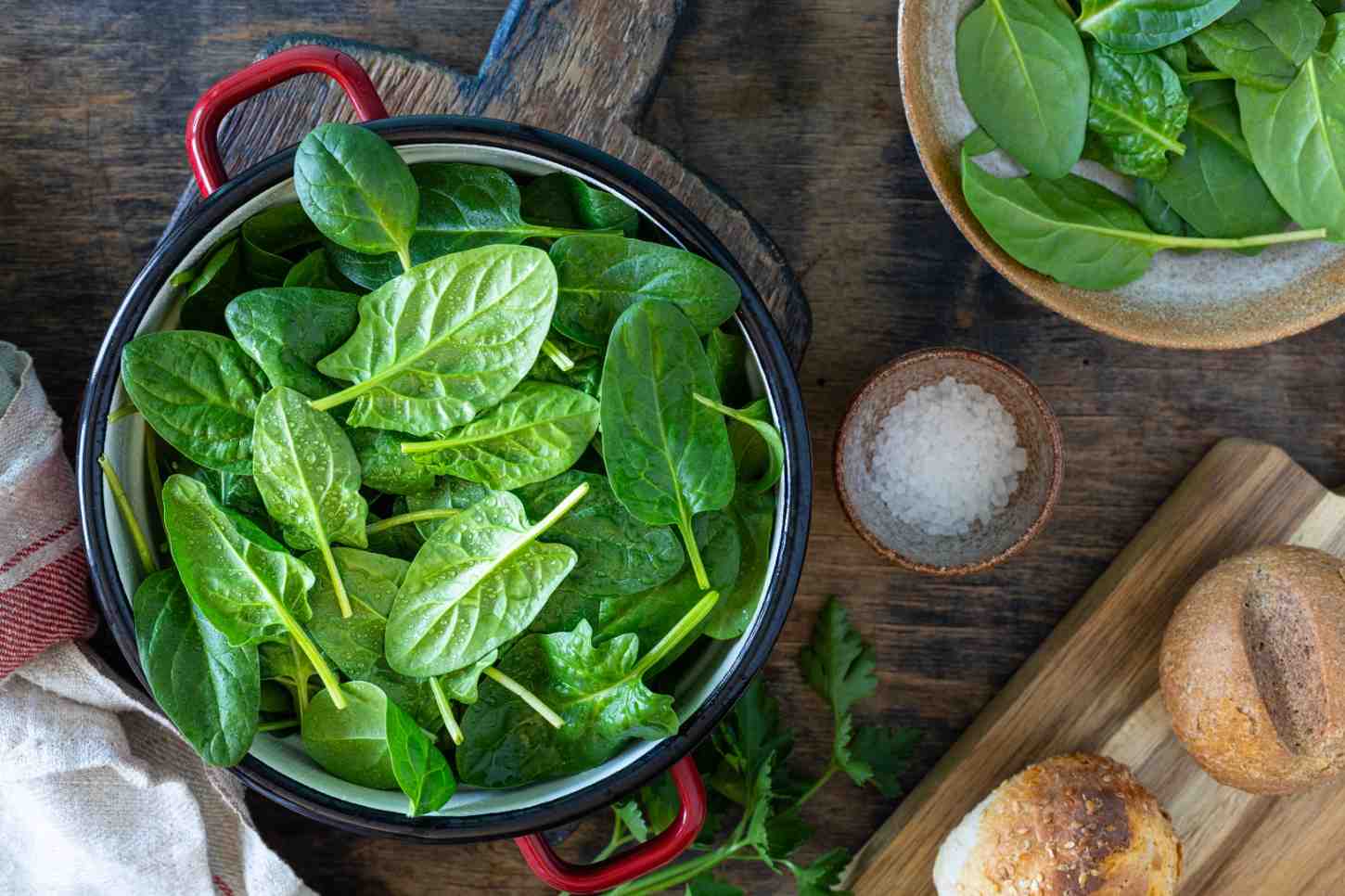Did you know that what you eat can significantly impact your brain function? It’s true! There’s a growing body of research suggesting that certain foods can enhance memory and cognitive performance. Among these, spinach stands out as a leafy green powerhouse packed with nutrients. So, if you’re looking to give your brain a boost, why not add some delicious spinach-based recipes to your meal plan? Let’s dive into five brain-boosting recipes that not only taste great but also harness the memory-enhancing benefits of spinach.
Contents
Why Spinach?
Before we jump into the recipes, let’s talk about why spinach is so great for your brain. Spinach is rich in antioxidants, vitamins, and minerals, particularly vitamin K, folate, and lutein, which have been linked to improved brain health. A study published in Frontiers in Aging Neuroscience found that higher consumption of green leafy vegetables like spinach may help slow cognitive decline in older adults (Morris et al., 2018). So, not only is spinach good for your body, but it also works wonders for your mind!
Now that we’re on the same page about spinach, let’s explore some tasty recipes that can help you boost your memory.
1. Spinach and Feta Stuffed Chicken Breast
Ingredients:
- 2 boneless, skinless chicken breasts
- 1 cup fresh spinach, chopped
- 1/2 cup feta cheese, crumbled
- 1 clove garlic, minced
- Salt and pepper to taste
- Olive oil for cooking
Instructions:
- Preheat your oven to 375°F (190°C).
- In a skillet, heat a bit of olive oil over medium heat. Add minced garlic and sauté until fragrant.
- Add the chopped spinach and cook until wilted. Remove from heat and stir in feta cheese.
- Cut a pocket in each chicken breast and stuff with the spinach-feta mixture. Season with salt and pepper.
- Heat more olive oil in the skillet and sear the stuffed chicken breasts for 3-4 minutes on each side.
- Transfer to the oven and bake for 20-25 minutes or until cooked through.
Why It’s Great for Your Brain:
This dish combines the high protein content of chicken with the brain-boosting properties of spinach and the healthy fats from olive oil. Plus, feta cheese adds a unique flavor while keeping it low in carbohydrates, making it a nutritious option.
2. Spinach and Avocado Smoothie
Ingredients:
- 1 cup fresh spinach
- 1 ripe avocado
- 1 banana
- 1 cup almond milk (or any milk of your choice)
- 1 tablespoon honey (optional)
Instructions:
- In a blender, combine spinach, avocado, banana, and almond milk.
- Blend until smooth. If desired, add honey for sweetness.
- Pour into a glass and enjoy!
Why It’s Great for Your Brain:
This smoothie is not only creamy and delicious but also loaded with healthy fats from avocado and potassium from bananas, both of which are known to support brain function. Spinach adds fiber and antioxidants, making this a perfect morning boost.
3. Spinach Quinoa Salad
Ingredients:
- 1 cup cooked quinoa
- 2 cups fresh spinach, chopped
- 1/2 cup cherry tomatoes, halved
- 1/4 cup red onion, diced
- 1/4 cup feta cheese (optional)
- 2 tablespoons olive oil
- 1 tablespoon lemon juice
- Salt and pepper to taste
Instructions:
- In a large bowl, combine cooked quinoa, spinach, cherry tomatoes, red onion, and feta cheese.
- In a small bowl, whisk together olive oil, lemon juice, salt, and pepper. Pour over the salad and toss to combine.
- Serve chilled or at room temperature.
Why It’s Great for Your Brain:
Quinoa is a complete protein, meaning it contains all nine essential amino acids. Combined with spinach, this salad provides a wealth of vitamins and minerals that support cognitive function. The healthy fats from olive oil also enhance nutrient absorption.
4. Spinach and Mushroom Omelette
Ingredients:
- 2 eggs
- 1 cup fresh spinach, chopped
- 1/2 cup mushrooms, sliced
- 1/4 cup cheese (optional)
- Salt and pepper to taste
- Olive oil or butter for cooking
Instructions:
- In a skillet, heat olive oil or butter over medium heat. Add sliced mushrooms and cook until soft.
- Add chopped spinach and cook until wilted.
- In a bowl, whisk the eggs with salt and pepper. Pour the mixture over the spinach and mushrooms.
- Cook until the eggs are set, then sprinkle cheese on top if desired. Fold the omelette in half and serve.
Why It’s Great for Your Brain:
Eggs are a fantastic source of choline, which is crucial for brain health. Combined with spinach, this omelette not only tastes great but also provides a solid dose of nutrients that can enhance memory and cognitive function.
5. Spinach Pesto Pasta
Ingredients:
- 2 cups fresh spinach
- 1/2 cup basil leaves
- 1/4 cup pine nuts (or walnuts)
- 1/4 cup Parmesan cheese
- 1/4 cup olive oil
- Salt and pepper to taste
- Pasta of your choice
Instructions:
- Cook pasta according to package instructions. Reserve 1/2 cup of pasta water before draining.
- In a food processor, combine spinach, basil, nuts, and Parmesan cheese. Pulse until finely chopped.
- With the processor running, slowly add olive oil until the mixture is smooth. Season with salt and pepper.
- Toss the pesto with the cooked pasta, adding reserved pasta water as needed to achieve desired consistency.
Why It’s Great for Your Brain:
This dish is a delightful way to incorporate spinach into your diet while enjoying the benefits of healthy fats from olive oil and nuts. The combination of these ingredients supports brain health and memory retention.
Frequently Asked Questions
1. How does spinach improve memory?
Spinach is rich in antioxidants and nutrients like vitamin K and folate, which are linked to better cognitive function and may help protect against age-related decline.
2. Can I use frozen spinach in these recipes?
Yes! Frozen spinach is a convenient alternative and retains most of its nutritional value. Just make sure to thaw and drain it well before using.
3. Are there any downsides to eating spinach?
While spinach is generally healthy, it contains oxalates, which can interfere with calcium absorption. If you have a history of kidney stones, it’s best to consume spinach in moderation.
4. How can I incorporate more spinach into my diet?
You can add spinach to smoothies, salads, omelets, or even soups. It’s versatile and can easily blend into many dishes without overpowering the flavor.
Conclusion
Incorporating spinach into your meals is a delicious way to boost your brain health and memory. Whether you’re enjoying a stuffed chicken breast or a refreshing spinach smoothie, the nutritional benefits of this leafy green are undeniable. So, the next time you’re planning your meals, remember these brain-boosting recipes and give your cognitive function the support it deserves.
And hey, don’t forget to have fun experimenting with these recipes! Cooking can be a creative outlet, and by adding spinach, you’re not just feeding your body; you’re also nourishing your mind.
This article is for educational purposes only and is not a substitute for professional medical advice. Always consult a qualified healthcare provider before making changes to your health routine.
References
-
Morris, M. C., Tangney, C. C., Wang, Y., et al. (2018). “Food Sources of Nutrients Linked to Better Cognitive Function in Older Adults.” Frontiers in Aging Neuroscience. https://www.frontiersin.org/articles/10.3389/fnagi.2018.00012/full
-
Mayo Clinic. (n.d.). “Spinach: Health Benefits.” Retrieved from https://www.mayoclinic.org/healthy-lifestyle/nutrition-and-healthy-eating/in-depth/spinach/art-20046696
-
National Institutes of Health. (n.d.). “Folate.” Retrieved from https://ods.od.nih.gov/factsheets/Folate-HealthProfessional/
-
Harvard Health Publishing. (2021). “The Brain-Boosting Benefits of Leafy Greens.” Retrieved from https://www.health.harvard.edu/mind-and-mood/the-brain-boosting-benefits-of-leafy-greens
Get Your FREE Natural Health Guide!
Subscribe now and receive our exclusive ebook packed with natural health tips, practical wellness advice, and easy lifestyle changes, delivered straight to your inbox.




